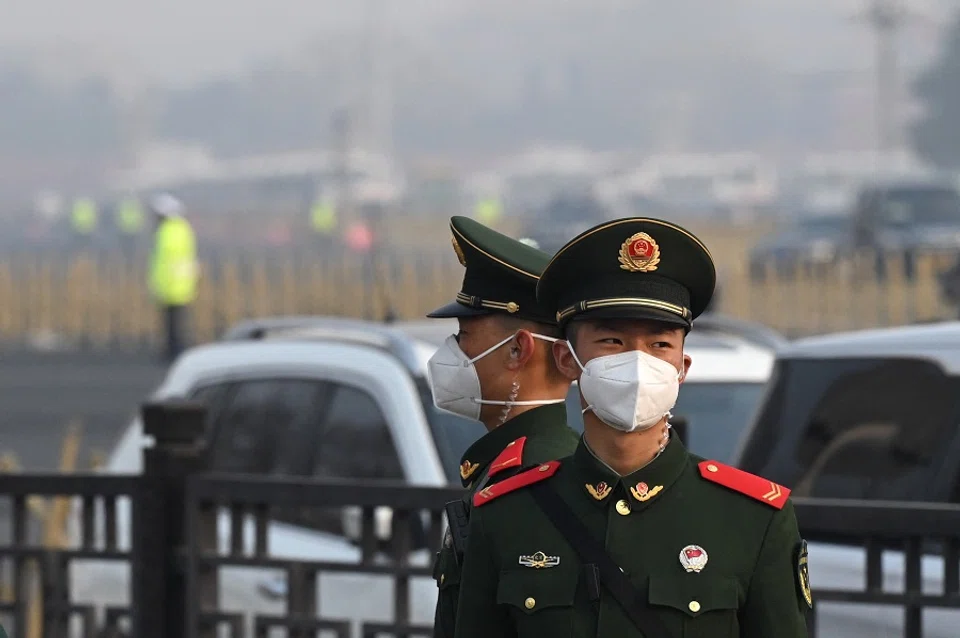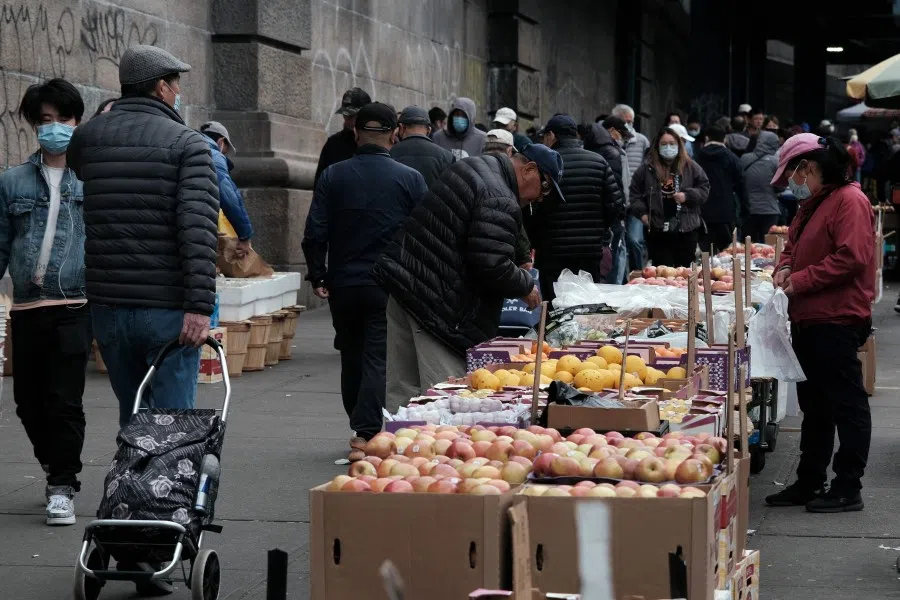China wielding long-arm jurisdiction of its own
Taiwanese commentator Chen Kuohsiang notes that China seems to be using long-arm jurisdiction to curtail overseas critics, activists and publishers. This has far-reaching consequences, not least in officially annexing Taiwan through legal precedent.

Recently, the Chinese authorities have been extending their jurisdiction beyond mainland borders. The most attention-grabbing case is the arrest of Fucha (富察, real name Li Yanhe), editor-in-chief of Taiwan-based publisher Gūsa (八旗文化), in mainland China during a trip to visit relatives. Gūsa has published several good books deconstructing Chinese history and critiquing Chinese society.
Confirming the arrest, mainland China's Taiwan Affairs Office Spokesperson Zhu Fenglian said Fucha was "under investigation by national security organs on suspicion of engaging in activities endangering national security".

A day before that, the Wenzhou procuratorate arrested "Taiwanese suspect" Yang Chih-yuan on suspicion of secession. Zhu said that mainland China's judiciary authorities would hold "Taiwan independence" activists criminally accountable, adding that Yang's case was "a further wake-up call for Taiwanese separatist forces".
This incident brings to mind the detention of Lee Ming-che, a Taiwanese who had conducted human rights activities in mainland China several years ago. He returned to Taiwan after serving a five-year jail sentence. But the difference is that Yang was convicted for his advocacy of "Taiwan independence" in Taiwan. This is the practice of long-arm jurisdiction.
... individuals can also be prosecuted or convicted for the statements they made in Hong Kong and Taiwan, or even in the US and Japan.
Targeting overseas critics, activists and publishers
It is not just Taiwanese residents who have been targeted. In March this year, the Hong Kong authorities arrested a 23-year-old university student who had returned to Hong Kong from Japan based on Hong Kong's national security law. She was arrested for allegedly posting pro-democracy messages inciting secession on her social media account while studying in Japan.
Seen together with the first two cases, it is clear that mainland China has started to practise extraterritorial jurisdiction, or long-arm jurisdiction, to crack down on overseas critics, activists and publishers who attack the mainland, and that individuals can also be prosecuted or convicted for the statements they made in Hong Kong and Taiwan, or even in the US and Japan.

When long-arm jurisdiction extends beyond a country's usual boundaries, that's extraterritorial jurisdiction. Such extraterritorial jurisdiction is often controversial because it is the exercise of state power by one state in the territory of another state, violating state sovereignty. The US often exercises extraterritorial jurisdiction, causing inter-state conflict. Such behaviour is considered an expression of American hegemony.
The US's practice of long-arm jurisdiction: contracts, tort, commerce
In the US, long-arm jurisdiction is most often exercised in tort cases or commercial transactions. Generally, the laws and regulations do not spell out the activities subjected to long-arm jurisdiction; they usually state that long-arm jurisdiction may be exercised as long as the principles of due process and the effects doctrine are met.
For instance, the Antitrust Enforcement Guidelines for International Operations issued by the US Department of Justice in 1995 clearly states: "First, the Agencies may, in appropriate cases, take enforcement action against anticompetitive conduct, wherever occurring, that restrains US exports, if the conduct has a direct, substantial, and reasonably foreseeable effect on exports of goods or services from the United States."
The US's political, military and economic prowess provides a strong backing for the expansion of its long-arm jurisdiction abroad.
Long-arm jurisdiction is fundamentally based on the effects doctrine. As long as an act committed overseas produces an "effect" in one's own country, regardless of whether the agent is a citizen of the country or resides there; and regardless of whether the act abided by local law, as long as the nature of such an "effect" is such that the exercise of jurisdiction by US courts is not entirely unreasonable, US courts can exercise jurisdiction over the cause of action that produced the effect.

The US's practice of long-arm jurisdiction has extended to contracts, tort, commerce, family matters, the internet and so on. The US's political, military and economic prowess provides a strong backing for the expansion of its long-arm jurisdiction abroad.
The US has imposed the most enduring trade embargo in modern history on Cuba in accordance with its domestic law, drawing the attention of the United Nations General Assembly which said that the embargo is an extraterritorial application of its laws and that the US has violated the principles of sovereign equality, non-interference in domestic affairs and freedom of trade and navigation.
There are examples of other cases targeted at companies and individuals. For example, the US Federal Bureau of Investigation arrested former Alstom executive and French national, Frederic Pierucci, in 2013 for allegedly bribing Indonesian government officials in violation of the anti-bribery provisions of US's Foreign Corrupt Practices Act. A US court subsequently sentenced him to 30 months in prison. After he was released on bail and returned to France, he wrote the book The American Trap: My Battle to Expose America's Secret Economic War Against the Rest of the World.
In recent years, there have been many cases involving China, such as the US Department of Justice filing criminal charges against China's Liaoning Hongxiang Group, on charges of violating United Nations Security Council Resolution 2270 and providing support for North Korea's development of nuclear weapons.
The most sensational case was Canada's arrest of Huawei's deputy chairman and CFO Meng Wanzhou based on a temporary extradition request from the US, on charges of violating US export controls by selling "sensitive technology" to Iran and covering up the transactions with false accounting records.
Western media also says China is building an overseas secret police, which violates the jurisdiction of other countries.
China's practice of long-arm jurisdiction: politics
China's exercise of long arm jurisdiction is mostly related to political cases.

In 2022, the Chinese Public Security Bureau was revealed to have set up secret overseas police stations called "110 Overseas" in Europe and the US, implementing long-arm jurisdiction over overseas Chinese without disclosing or obtaining permission from the governments of the countries where the stations were located - some secret police stations have already been shut down by the host countries, while Beijing denies the accusations.
Western media also says China is building an overseas secret police, which violates the jurisdiction of other countries. Since September of last year, the Spain-based non-governmental organisation Safeguard Defenders has released several reports accusing China of setting up 102 secret overseas police stations in 53 countries or regions, and monitoring and harassing overseas dissident groups or individuals.
For instance, on 18 April, a US law enforcement unit exposed a secret police station set up by the Chinese government in New York City's Chinatown, with more than 30 people, including mastermind Lu Jianwang, suspected of monitoring and harassing Chinese democracy activists in the US.
...this represents a departure from China's past practices, and that Beijing is not only asserting its sovereignty over Taiwan on a political level, but also officially annexing Taiwan through legal precedent. - Lee Ming-che, a Taiwanese who had served a five-year jail sentence in mainland China
'Officially annexing Taiwan through legal precedent'
This is so-called "red/communist" extraterritorial jurisdiction, which monitors non-compliant individuals overseas.
The individuals mentioned earlier from Taiwan and Hong Kong were charged with crimes related to their overseas speech when they entered mainland China - such incidents have been a great deterrent to the Chinese living outside mainland China.
Yang Chih-yuan was charged with "secession", while Lee Ming-che, who was also sentenced to prison by Beijing believes that the charges brought against him were all related to activities in Taiwan, including expressing political views and participating in political parties, and he did not do anything illegal in mainland China, but the Beijing authorities considered his activities in Taiwan as if they were offences in mainland China.
Lee believes that this represents a departure from China's past practices, and that Beijing is not only asserting its sovereignty over Taiwan on a political level, but also officially annexing Taiwan through legal precedent. This argument has legal basis and reveals the implications of Beijing's exercise of long-arm jurisdiction over Taiwan, which will have far-reaching effects.
The fact that the Supreme People's Procuratorate of China arrested and charged Yang Chih-yuan with "secession", causing a stir in Taiwan that in itself reflects the panic caused by the CCP's expansion of jurisdiction into Taiwan.

The People's Daily believes that this is "the mainland's strengthening of sanctions against the provocation of Taiwan independence", but Taiwan's Mainland Affairs Council (MAC) has made strong counter-accusations of its own, noting that similar incidents have occurred repeatedly in recent times, with China arbitrarily arresting Taiwanese people and "seriously harming the rights and interests of our people and creating fear". The MAC reminded Taiwanese people that before going to mainland China, they should be aware that mainland China is "in the habit" of violating personal safety.
While more active long-arm jurisdiction may strengthen Beijing's control over overseas Chinese, it may also cause the loss of more hearts and minds overseas.
To Taiwanese people who value human rights and the rule of law, Beijing's "habitual" punitive actions only confirm the fundamental political differences between both sides of the Taiwan Strait. While some are fearful and restrained in what they say and do, the psychological distance from mainland China has grown, so that they are less inclined towards reunification.
As for overseas Chinese, as long as they need to enter China, they have to be circumspect to avoid being targeted for punishment - however, their sense of identification with China has also weakened. While more active long-arm jurisdiction may strengthen Beijing's control over overseas Chinese, it may also cause the loss of more hearts and minds overseas.
This article was first published in Lianhe Zaobao as "中国长臂管辖权制造恐惧".





![[Big read] When the Arctic opens, what happens to Singapore?](https://cassette.sphdigital.com.sg/image/thinkchina/da65edebca34645c711c55e83e9877109b3c53847ebb1305573974651df1d13a)